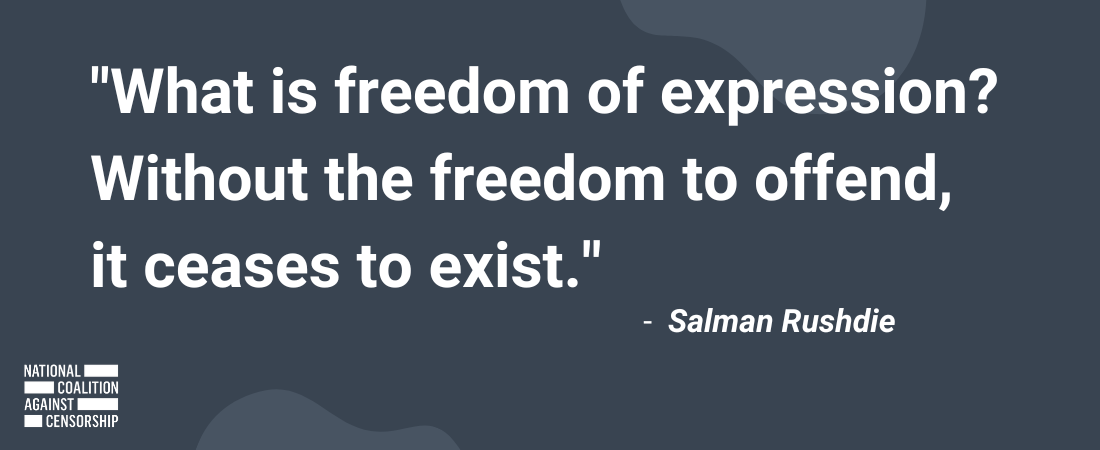NEW YORK – The National Coalition Against Censorship (NCAC) released the following statement in response to today’s horrific attack on Salman Rushdie, a brave defender of free speech. The NCAC is an alliance of 59 national nonprofit organizations that is committed to the non-partisan defense of free expression.
“Today’s horrific attack on author Salman Rushdie during a public lecture at the Chautauqua Institution is deeply disturbing. Although the motive for the assault remains unknown, it inevitably raises the suspicion that it was an attempt to punish Rushdie for writing The Satanic Verses, which the Ayatollah Khomeini condemned as a blasphemy of the Muslim religion in 1989. Khomeini issued a fatwa that called on Muslims to kill Rushdie, who was forced into hiding. He spent almost a decade under police protection.
“Mr. Rushdie has bravely defended freedom of expression throughout his career, determined not to be silenced by fear and encouraging others to speak out. An established advocate for writers’ protections, Mr. Rushdie is founding president of the International Parliament of Writers (which has since evolved into the International Cities of Refuge Network), which offers resources and shelter to artists and writers at risk of persecution. At the time of the attack, Mr. Rushdie was participating in a public discussion on the role of the United States as a refuge for artists and writers in exile.
“Mr. Rushdie’s famous refrain, ‘What is freedom of expression? Without the freedom to offend, it ceases to exist.’ underscores the key democratic tenets–-the right to disseminate and access ideas, the right to public debate, and, crucially, the right to disagree—whether it be with fellow civilians, institutions, or governments.
“We hope for his speedy recovery.”
About National Coalition Against Censorship
Since its inception in 1974, the National Coalition Against Censorship (NCAC) has functioned as a first responder in protecting freedom of expression, a fundamental human right and a keystone of democracy. Representing 59 trusted education, publishing, and arts organizations, NCAC encourages and facilitates dialogue between diverse voices and perspectives, including those that have historically been silenced.


